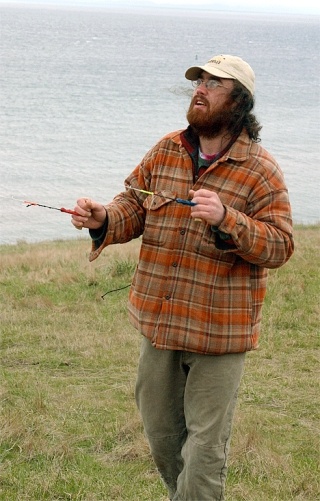The idea that two popular state parks on Central Whidbey Island could be mothballed has community leaders scrambling to make sure it doesn’t happen.
They are busy talking to parks officials and state legislators about the importance of Fort Casey and Fort Ebey state parks to Whidbey Island.
Mark Preiss, manager of Ebey’s Landing National Historical Reserve, which encompasses both parks, said the parks partner with the National Park Service to provide learning and recreational resources. The parks provide a place for visitors to camp and hike. With the gates at the parks closed, visitors would have trouble experiencing the Reserve.
The closures would also hurt the local business community.
Chet Ross, chair of Island County Tourism, said in a letter to the state Parks and Recreation Commission that the two parks represent one million visitors to Whidbey Island and their closures would have long-lasting negative impacts on Whidbey Island and Island County as a whole.
Lynda Eccles, executive director for the Central Whidbey Chamber of Commerce, said that possibility of closing the parks on Central Whidbey Island is another hit for a community that is already feeling the effects of limited ferry service at Keystone Harbor.
Chamber President Sue Cunningham said in an email that the chamber will continue to work with the town of Coupeville and parks officials to address continuing issues of maintaining the parks.
Fort Ebey and Fort Casey state parks are included in a list of parks that could be mothballed due to the state’s budget crisis. Criteria included parks that cost more than $300,000 to run over a two-year period and the number of visitors.
State Parks came up with the list in an effort to show the legislature what $13 million worth of additional cuts would do to the park system. The entity had previously came up with a list of 13 parks to close or transfer to other organizations as part of a plan to make $10 million in cuts. In all, parks could lose nearly 23 percent of its budget.
Mothballing a state park would mean closing the gates to the park and turning off the utilities.
Virginia Painter, spokesperson for the state Parks and Recreation Commission, said there would be a mothballing and stewardship plan developed that would identify the features of effected parks that would be preserved. She said any such plan that is developed would also involve public participation. There would a minimal amount of staffing at a park to maintain important aspects of the area.
While the gates to the parks are closed people could still walk into a park, but they would be doing so at their own risk. She added there also wouldn’t be any advertising that the park would be open.
Coupeville Mayor Nancy Conard said that two things have to take place: Legislators need to be lobbied, and residents have to work with parks to suggest criteria to keep parks open, especially Fort Ebey and Fort Casey. Some positive arguments Conard cites are that both parks are located within the Historic Reserve and both provide scarce shoreline access.
Cunningham said the chamber has been advised that the final list of possible park closures will be issued April 23. Prior to that, public meetings will take place, however dates and locations have not been decided.




